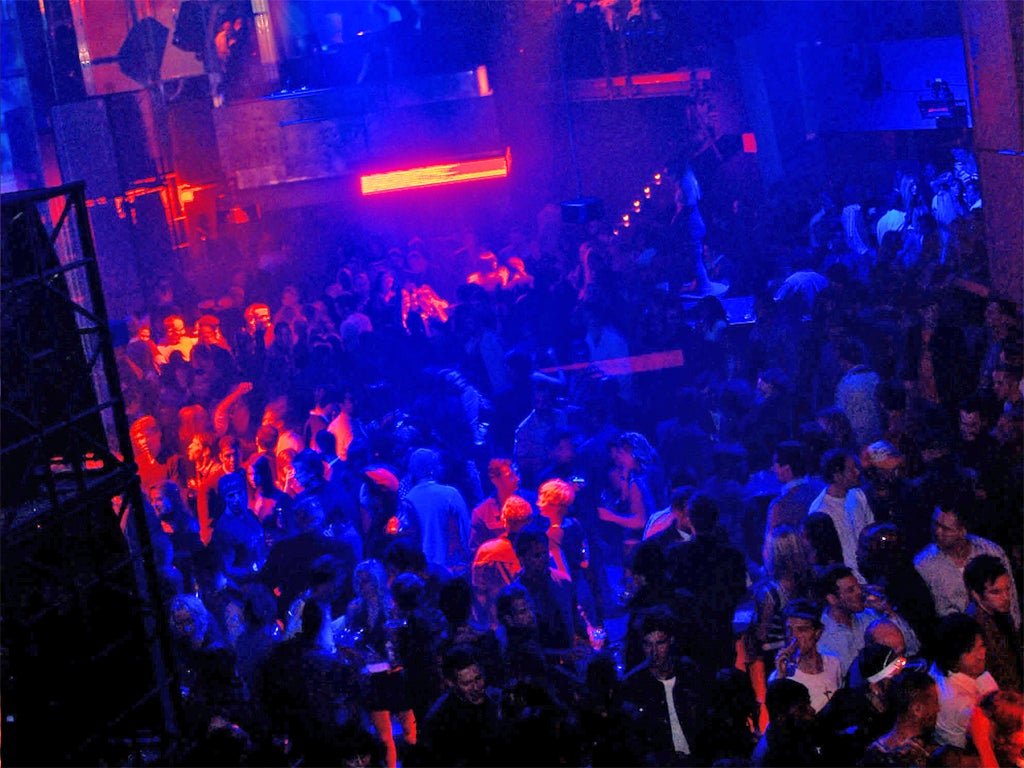Party drugs linked to alarming rise in HIV amongst gay men
London sees 20 per cent rise in infections as charities call for better sexual health services

HIV infections among gay men in London are soaring, with sexual health workers saying that a “chaotic and harmful” link between high-risk drug use and gay sex in the capital is fuelling the increase.
Latest figures from Public Health England show that the rate of infection in the capital leaped by more than 20 per cent in 2012. Charities have warned that the virus is once again one of the most serious public health crises in the UK today.
Across the country, rates of infection were up by 8 per cent to 3,240 new infections among men who have sex with men (MSMs). In London alone there were 1,720 new infections, with that figure likely to be revised up to nearly 2,000, figures published in The Lancet revealed. Rates of transmission are likely to have been increased by irresponsible use of needles during drug-taking, but also because of a rise in people having unprotected sex while high on drugs.
Thanks to new treatments, people with HIV can now hope to live healthy, normal lives, as long as they take daily antiretroviral tablets.
However, the virus remains a huge public health concern, as many do not know they have it and without treatment it can lead to debilitating damage to the immune system and life-threatening illness.
HIV infection rates have been rising steadily over the past decade, with health authorities concerned that the safe-sex message first publicised during the Aids epidemic of the 1980s was no longer getting through to a new generation.
Although some of this year’s increase was attributed to more widespread HIV testing, with the number of tests in London up 17 per cent since 2011, Public Health England said there was “anecdotal evidence from drug and alcohol clinics in London that recreational drug use amongst gay men is a growing issue.”
Concerns were raised earlier this year over increasing numbers of men smoking, snorting and injecting party drugs such as crystal methamphetamine and mephedrone, often in combination with sex parties.
David Stuart, manager of the specialist CODE clinic in Soho, run in association with the sexual health clinic 56 Dean Street, said that 99 per cent of his clients only used the drugs for sex. Emotionally vulnerable men – often HIV positive – found that they could only enjoy sex while on drugs, he said.
“There are of course lots of gay men out there who have great, long-term relationships and a great understanding of their sexuality and romantic lives. But there are an increasing number of men that are struggling with that and using drugs to manage the confusion that they’re experiencing – and that number is growing and the culture is becoming more chaotic and harmful,” he said.
The association of party drugs with gay sex has been observed in other cities, with large gay scenes such as San Francisco, Melbourne and Sydney.
The Lancet also reported a rise in gay men having sex without condoms, with anecdotal evidence of HIV negative men borrowing four days’ worth of HIV medication from HIV positive friends in order to have sex without condoms at sex parties with HIV positive men – a preventative measure that has not been proven effective.
Sexual health charities said that more needed to be done by London local authorities to provide specialist services that could advise gay men about precautions when encountering “community norms of using drugs for sex”.
“There is a need for a greater focus within London HIV prevention work on helping gay men who are encountering difficulties with drugs and safer sex and also on encouraging others to avoid these problems and resist peer pressure,” said Lisa Power, Policy Director for the Terrence Higgins Trust.
Yusef Azad, director of policy and campaigns at the National Aids Trust (NAT) said that, on average, five gay men in London are diagnosed with HIV every day.
“This is one of the most serious public health issues we face in the UK and it must be treated as a public health priority,” he said. “NAT recently called on London Councils to address the issue of problematic drug use amongst many gay men which is fuelling HIV transmission in the Capital. We want to see sexual health services which are better at identifying drug issues and drugs services which feel comfortable discussing the sexual context of gay men’s drug use.”
Case study: HIV is still a taboo among gay community
Ant, 35, works in marketing and lives in South-east London. He was diagnosed with HIV six years ago
“I do a lot of volunteering work with the Terrence Higgins Trust and Gay Men Fight Aids. They have been doing work around the issue of drug taking while having sex – known as “chem-sex”. I would say it is a small sub-section of gay men involved in this culture, but there are increasing numbers.
“A lot of gay men who are involved in this scene hook up online and search for others who want to have unprotected sex and take drugs. Although I think there is awareness of HIV among the gay community, it’s still a taboo and there’s a real stigma surrounding it. A younger gay man in his 20s once told me that I didn’t look ill – so how could I have HIV?”
Ant was speaking to Emily Gorton
Join our commenting forum
Join thought-provoking conversations, follow other Independent readers and see their replies
Comments